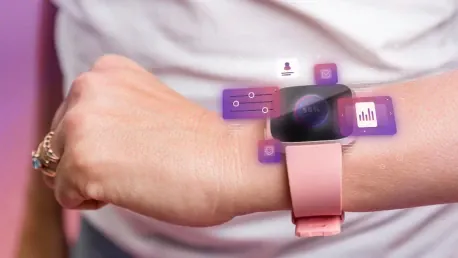The recent surge in wearable technology has led to various innovative devices entering the market, but few have created as much speculation and debate as Humane’s Ai Pin. The startup, known for its ambitious goal to revolutionize the smartphone industry, aimed to introduce a wearable device that could replace traditional mobile phones. However, after a rocky launch and subpar reviews, the pioneering project struggled to gain traction, ultimately resulting in more returns than sales. Humane, despite raising significant capital, could not sustain its vision, leading to the company’s eventual shutdown and the subsequent sale of its assets to HP for a mere $116 million, which was less than half of their total funding.
The Ambition and Challenge of Ai Pin
The idea behind the Ai Pin was both revolutionary and controversial. Humane envisioned a future where wearable devices would seamlessly integrate into daily life, removing the need for bulky smartphones. This vision was rooted in advanced AI capabilities, offering users a hands-free, voice-activated experience. The device promised to perform nearly all functions of a smartphone, including making calls, sending messages, and accessing the internet, all while being unobtrusive and stylish. However, this ambitious project faced significant challenges from the start. The tech market, heavily dominated by established smartphone giants, may not have been prepared for such a drastic shift. Consumers were accustomed to the capabilities and convenience of their smartphones, making the transition to a new, untested device daunting.
Furthermore, despite the impressive AI integration, the Ai Pin encountered technical issues and usability problems. Critics pointed out that the device’s voice recognition was often inaccurate and its battery life insufficient, leading to frustration among early adopters. These challenges led to negative reviews, further hindering its acceptance in the market. As returns outweighed sales, Humane’s dream of revolutionizing mobile technology began to crumble, illustrating the harsh realities of launching groundbreaking products ahead of market readiness.
The Broader Impact and Future Considerations
The case of Humane’s Ai Pin raises important questions on the readiness of both the market and consumers for new technological paradigms. During a discussion in TechCrunch’s Equity podcast, hosts Kirsten Korosec, Max Zeff, and Anthony Ha explored whether the timing of Ai Pin’s release played a significant role in its downfall. They highlighted that while there is considerable interest in AI-powered devices, the wider market might need more time to adapt to such innovations. This sentiment underscores a recurring theme in the tech industry: even the most groundbreaking ideas can falter if introduced prematurely. Despite the setbacks, the underlying technology of Ai Pin holds potential for future developments. After acquiring Humane’s assets, HP now has the opportunity to refine and redeploy these technologies in new contexts or future products. The hosts of the podcast discussed how HP might leverage Humane’s expertise and innovation to create more market-aligned AI-powered devices.
Furthermore, the conversations branched out into the broader implications of AI on various sectors, including government initiatives and evolving venture capital dynamics. The Ai Pin episode served as a reflection on how AI is reshaping the landscape of technology investments and consumer expectations. As AI continues to evolve, companies and investors alike must carefully balance the allure of innovation with practical considerations of market timing and user readiness.
Lessons and Path Forward
The recent surge in wearable technology has ushered in various innovative gadgets, but few have sparked as much discussion as Humane’s Ai Pin. This ambitious startup aimed to revolutionize the smartphone industry by introducing a wearable device that could replace traditional mobile phones. Despite its lofty goals and substantial capital raised, the project faced a tumultuous launch and received subpar reviews. These factors hindered its market adoption, leading to more returns than sales. Although Humane had a strong vision and managed to generate significant investment, it ultimately couldn’t sustain its operations. This downfall led to the company’s eventual closure, and its assets were sold to HP for just $116 million, less than half of their initial funding. This outcome emphasizes the challenges and risks involved in the highly competitive tech industry, where even the most innovative ideas can struggle to succeed without flawless execution and favorable public reception.









